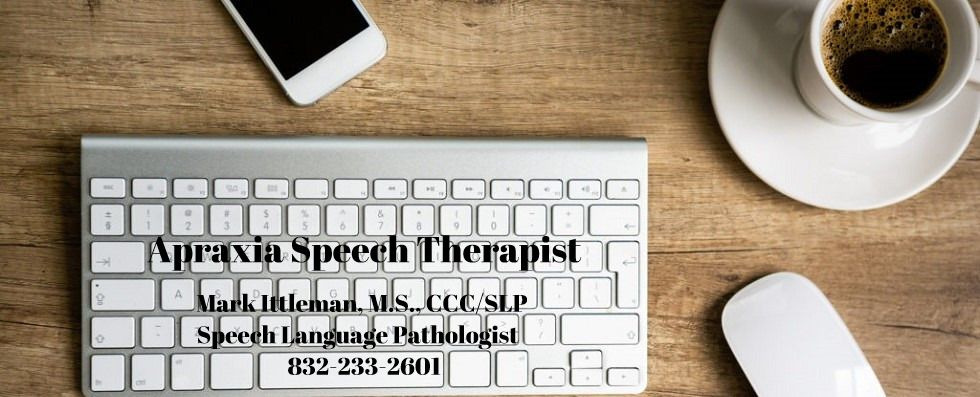Apraxia Aphasia Speech Therapy it Fun
 |
| Apraxia Aphasia Speech Therapy Should Be Fun! |
Apraxia-Aphasia Speech Therapy Making it Fun: An Example
Many people like music, whether it be rock and roll, pop, classical, country, opera etc. A perfect example of learning indirectly occurs when we like a song and listen to it often. We do that not to learn the words, but because we like the song. And something magical occurs within a period of time. We find that the words are there when we want to sing it, or sing along with the piece of music. This proves that you don't have to "try" to learn as long as you are subject to what is stimulating repeatedly.
Often Those with Apraxia Aphasia are Easily Depressed: It Can be Fun!
Humor and laughter are often what the person with aphasia needs. It is a pattern breaker, and interrupter. It is easy for those with aphasia to think about their disability. It can make anyone sad and depressed when thinking of ones life before aphasia and the drastic changes afterwards.It is what the brain is experiencing at any given moment that affects mood and emotions. When things are kept light and fun, the subsequent emotion matches that: light and fun or an absence of stress or negative thoughts.
Often people who have aphasia may enter the therapy room and if the therapist is upbeat and engages the person with aphasia into a fun and interesting conversation with humor, learning occurs more naturally, and there is more of a tendency towards talking and sharing. In addition the therapist if knowledgeable in language stimulation and The Teaching of Talking Approach to talking can engage in a conversation that is appropriate for the person with aphasia. The therapist knows if the person is stimulable or able to repeat a specific number of sounds, syllables, words, phrases and sentences and also knows what types of cues would be best in order to stimulate the person with aphasia to utter meaningful speech.
Making it Fun for Those with Apraxia Aphasia: Use Cues
Have you ever been talking with someone, or even in a group of people and all of a sudden you go to say a word, and it's not there? The temporary loss of recall for a word or idea that one wishes to use in conversational interchange can be very stressful and embarassing. Does the stress from embarrassment help the individual find the word that has temporarily disappeared? Most of us would answer with a definite NO.
Now what happens in a conversation when someone in the group may know what we are talking about and non-chalantly supplies the thought that we were missing?
Apraxia Aphasia Speech Therapy Making it Fun: How do you spell relief? CUE!
If a listener can cue the individual who is experiencing anomia, the loss in recall of a word or idea in a non-threatening and accurate way the conversation can continue with no stress or embarrassment. There are theapists who believe that making a person struggle to get through an utterance is therapeutically good. If a person develops stress or negative emotion during conversation, it does not lead to improved recall, nor does it foster the desire to converse since the whole process after a while can get associated with an uncomfortable feeling that is charaterized by fear and diminished self worth and confience. That only leads to avoidance and wanting to withdraw from speaking altogether. Is that what we want? (An emphatic NO!)
Enjoyment and Laughter Important Aspects of Any Speech Therapy Visit
Laughter and enjoyment of an experience has proven beneficial to our biochemistry. It has been shown that humor and laughter lead to reductions in stress hormones such as cortisol and epinephrine. When laughing the brain also releases endorphins that can relieve some physical pain.
Is it a correct assumption that many of us enjoy experiences that are comfortable, light, entertaining, and interactive? Would it be safe to surmise that the same may be true for those who undergo speech therapy for Apraxia and Aphasia? Let's make sure we adopt the ways to help people talk that are enjoyable and fun. It is very possible that speech and language stimulation when given by a trained spouse, caregiver or therapist using the Teaching of Talking Methods can be alot of fun, no matter what those unfamiliar with the method may say about their approaches.
About the Author
 |
| Author Moshe Mark Ittleman |

